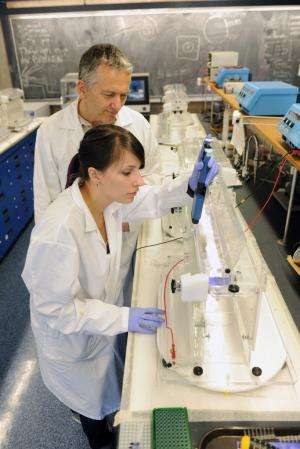Scientists develop Atlantic fish DNA database with possible conservation and seafood fraud implications

Dal's Paul Bentzen and colleagues have developed a publically available DNA database to identify all fish commonly encountered in the ocean off Atlantic Canada. This database could impact ocean conservation, species tracking and seafood fraud.
Bentzen and colleagues used a cataloguing process called "DNA barcoding". Canada has led the world in this area. Dr. Bentzen's work is part of a larger effort to catalogue all species. Anyone can access the database at www.barcodinglife.com/. The database could help with species tracking and conservation, as it will make illegally landed fish easier to identify. Research suggests that certain people have, and continue to, illegally land and keep high-value species.
In addition, the catalogue could help combat seafood fraud by making identifying fraud more accessible. Currently, consumers are not always receiving what they order from a menu or read on a food label. Research shows that low-value species are sometimes substituted for high-value ones.
According to Paul Bentzen, Professor in the Department of Biology, "With growing pressures from fisheries, climate change and invasive species, it is more important than ever to monitor and understand biodiversity in the sea, and how it is changing. Our database provides a new tool for species identification that will help us monitor biodiversity. The availability of ever easier to use DNA sequencing technology can make almost anyone 'expert' at identifying species - and all it takes is a scrap of tissue."
He continued, "There can be many steps in the supply chain between when the fish leaves the water and when it appears on a plate. With many desirable species becoming ever more scarce and expensive, there will always be temptation to substitute a cheaper fish (or an illegally harvested one) for a legal, more expensive one. We know it happens. DNA data never lie, unlike some seafood labels and restaurant menus. With the DNA database, it will be easier to detect seafood fraud when it happens."
More information: Barcode of Life Database: www.barcodinglife.com/
Provided by Dalhousie University














